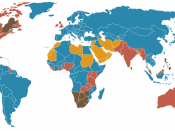EXECUTIVE THEORY.
The theory of promissory estoppel can be profoundly complex. The numerous cases that govern theory of promissory estoppel contain intricate provisions and employ a unique vocabulary. Yet theory of promissory estoppel must often be decided by juries of different countries, who probably have difference in their common law and civil law . Like other complex term, theory of promissory estoppel sometimes presents juries with issues they may not be equipped to handle.
This article observes how the theory of promissory estoppel developed in the U.K. U.S. and Australia. Moreover the interaction of promissory estoppel and civilian theory offers us the chance to watch comparative law in action. The common law and civil law, which usually operate in entirely different countries, are forced together in this instance. This article discusses not only the profound theoretical effects that Promissory Estoppel has in different countries, but also peculiar aspects of the judgements.
The main purpose of this article is to highlight and analyse the significant and effective jury instructions in theory of promissory estoppel .The first part of the article briefly covers basic background material concerning theory of promissory estoppel and how it developed under English Law. The second part discusses judgements in the U.S. and Australia covering some of the claims unique to theory of promissory estoppel
This article examines how the doctrine has functioned when removed from its common-law origins and how civilian theory has reacted as it is an import from the common law. Promissory estoppel was conceived as a substitute for consideration, yet the civil law does not use the doctrine of consideration. Originally used to solve problems incident to gifts, promissory estoppel in its civil-law incarnation has been legislatively excluded from operating in many donative cases. After observing how promissory estoppel works within a civil-law setting,


